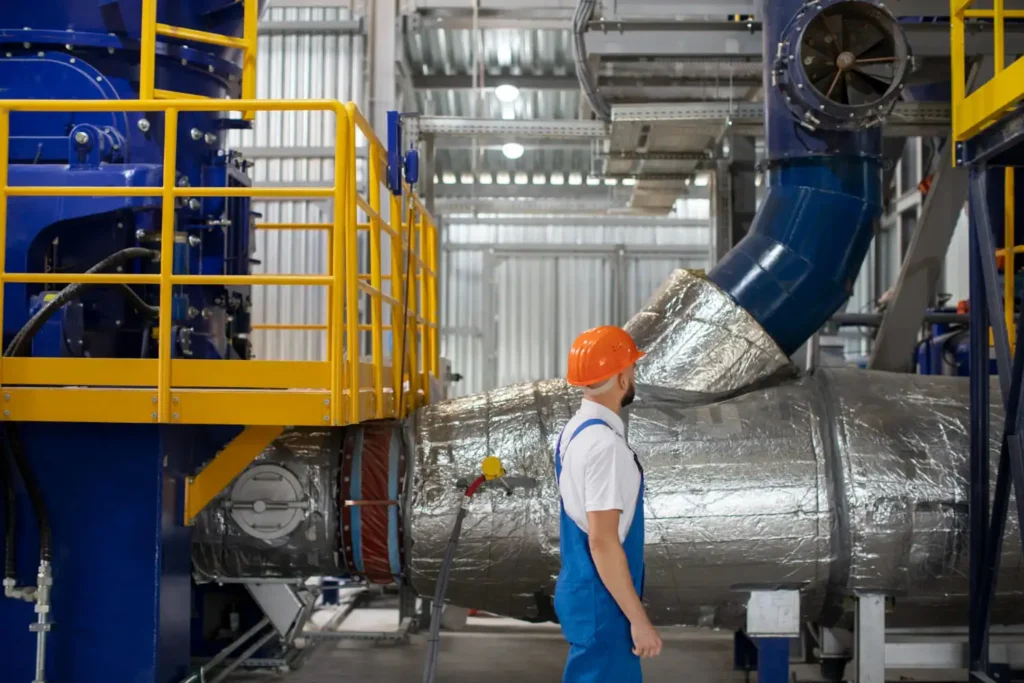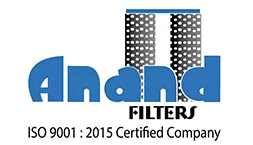How Industrial Filters Are Transforming Modern Manufacturing: Trends, Technologies & Future Innovations

Introduction
As modern manufacturing moves into a new era, precision, sustainability, and efficiency are becoming more essential than ever. The significance of industrial filter manufacturing in 2025 has increased substantially due to the rapid development of automation, robots, and data-driven production.
Industrial filtration is an essential step in many industrial processes, critical to sectors and industries across the board. It is used to extend the life of manufacturing equipment and also to remove materials and particles from liquids. Clean air, clean liquids, and clean oils are all required for equipment to last long and produce quality results in manufacturing.
Industries have adopted modern industrial filtration systems and industrial filtration technology because they cannot afford contamination, downtime, or inefficiencies caused by poor filtration.
Evolution of Industrial Filtration in the Last Decade
Filtration technology has come a long way since it was a simple process for separating solids from liquids. The introduction of industrial filtration solutions is a direct result of the industrial world today, driven by product quality, productivity, and environmental sustainability.
In 2018, the global industrial filtration market was valued at 34.79 billion USD and is estimated to grow at a CAGR of around 4.3% to reach 48.52 billion USD by 2026.
One of the most noteworthy changes is the transition away from manual filtering toward intelligent, sensor-based solutions. As a result of this change, organizations have been able to adhere to industrial filters manufacturing 2025, which is more focused on automation, accuracy, and zero-defect manufacturing.
Different industries use different types of industrial filtration technology, which is frequently used in sectors where accuracy and reliability are crucial, such as biotechnology, pharmaceuticals, and food & beverage. This continuous evolution is shaping the new future of production efficiency.
Latest Trends in Industrial Filters (2025)
With increasing attention to sustainability, energy efficiency, and healthy indoor environments, industrial filtration systems are changing faster than ever before. Changes to the commercial and industrial spaces will change how companies seek clean air solutions in 2025.
Industrial filter trends 2025 will take hold, and it will be a year of disruptive breakthroughs. New materials, the drive to sustainability, and intelligent technology are already advancing change. We define the market in three ways:
Smart technology integration:
- Monitoring with IoT: Filters with sensors monitor pressure drop, particulate capture, and also replacements using real-time data.
- AI Maintenance Optimization: Predictive analytics for an AI maintenance plan that identifies the optimal maintenance schedules for filter replacement and also saves money.
Advanced Technologies for Filtration Devices:
- High Efficiency Filters: Low energy cost while achieving HEPA-level efficiency, now adapted for broader industrial applications.
- Nаnofiber Filtration Technology: Improving filter media by reducing airflow resistance while capturing ultra-small particles.
Solutions for Enhanced Airborne Pollution:
- Industrial and Commercial Solution: Utilization of the activated carbon and antimicrobial filters to eliminate the VOCs, pathogens, and micropollutants.
- Wildfire Smoke Adaptation: Continuous clean air delivery using filters for locations prone to wildfire smoke.
Types of Industrial Filters Used Across Manufacturing Sectors
Manufacturing industries depend on a variety of industrial filters, depending on their needs and processes. Every filter serves a distinct purpose and is ultimately responsible for maintaining the efficiency, safety, and cleanliness of the systems.
Air Filters: In many industrial processes, you not only care about the quality of the air circulating, but also about the health of the work environment and the reduction of contaminants that could lead to employee sickness. Manufacturing air filtration minimizes your plant’s environmental pollution output and is necessary for a safe work environment. It is tough to operate your plant under the EPA’s maximum air pollutant concentration limits without air filtration.
Liquid Filters: Industrial filtration solutions and filtration are necessary for more than just air. Water is very crucial in the manufacturing process. Therefore, it is essential to remove any natural or accumulated contaminants before using the water. Failure to address it will ensure contaminants impact the process quality and the finished work.
Dust Collecting Filters: Dust-collecting filters are essential to ensure equipment safety and maintain air quality in environments that generate significant particulate dust (e.g., mining and woodworking).
Oil Filters: Protect industrial equipment, compressors, hydraulic systems, and engines. If lower-quality oil is used, it will cause equipment damage, friction, and overheating, but advanced oil filters used in industrial filter manufacturing 2025 can capture tiny metal particles and contaminants.
How Smart Filtration Systems Improve Manufacturing Efficiency
Contemporary industrial filter trends 2025, and strategies focus on innovative filtration. Contemporary filtration systems are active systems that enhance performance and productivity, rather than passive systems.
Real-Time Monitoring: Continuous monitoring enables air quality to be monitored, facilitating awareness of any changes. For example, when a pollutant enters the space, the system can quickly increase its filtration capacity to remove and reduce that pollutant. Because of these functions, modern industrial filtration technology has become essential for safety and quality control.
Predictive Maintenance: By collecting this data, the filter can inform us when it’s approaching the end of its service life, enabling us to plan, avoid unscheduled downtime, and keep the system running efficiently.
Reducing Downtime: Downtime is costly for any manufacturer. Innovative filtration can help prevent mechanical failure by operating in a cleaner, more efficient state. Providing ongoing cleaning and inspection of the filters will allow machines to run longer and more efficiently. To ensure productivity, firms are increasingly using industrial filtration systems, but they face challenges to operational efficiency.
Future of Industrial Filtration Technology
New materials, greater automation, and advanced engineering are defining the future of filtering. As advances in industrial filters manufacturing 2025 evolve, expect even more drastic changes in filtration practices over the next decade.
AI-Based Optimization: Artificial intelligence (AI) is enhancing almost everything we do, often out of sight. Regardless, AI’s application to industrial filtration technology is a significant benefit. Despite some people’s uneasiness with the overall AI landscape and its role in creative filtration, the benefits, both current and future, are undeniable.
Internet of Things (IoT) in Filtration: The Internet of Things (IoT in filtration) allows for smart sensors to monitor filtration efficiency and the quality of the industrial filtration system in real time. These sensors immediately alert operators to issues, enabling preventive maintenance and preventing costly environmental disasters.
Cloud Connection for Remote Management: Cloud solutions now enable you to filter data remotely. Maintenance personnel can modify settings, inspect filters, and receive alerts while off-site. It’s the future of industrial filtration, especially for companies with regional operations, where physical inspection is either dangerous or impossible!
Sustainable and Reusable Filter Media: To comply with environmental regulations, industries will switch to low-energy, recyclable/reusable media. The next era of industrial filtration technology will feature environmentally sustainable filtration.
Conclusion
Industrial filtration systems provide more than just the ability to keep machines running smoothly. They are critical to productivity, product quality, and waste management. Since filtration systems affect every part of the process, they are now becoming a vital capital investment in many industrial applications.
As 2025 draws closer, more accuracy, sustainability, and operational efficiency are being requested. Each of these trends underscores the need for more sophisticated industrial filter manufacturing in 2025. Innovative filtration technologies can offer greater intelligence, efficiency, and responsiveness than traditional filtration systems, making them a better-tailored solution to adapt to the evolving needs of industry today.
When industries switch to intelligent filtration, they can simplify processes, improve sustainability and regulatory compliance, enhance performance, and potentially save high operational costs.
FAQs
1. What are industrial filters and why are they important in manufacturing?
Industrial filters remove dust, contaminants, and impurities from air, liquid, or process systems. They help maintain product quality, protect machinery, and ensure safe, efficient manufacturing operations.
2. How are smart and IoT-enabled filters improving modern factories?
Smart filters use sensors to monitor pressure, airflow, and contamination levels in real time. They send alerts for cleaning or replacement, reducing downtime and improving maintenance efficiency.
3. How does advanced filtration technology reduce manufacturing costs?
Modern filters improve machine performance, lower energy consumption, and prevent breakdowns. This reduces maintenance expenses and helps factories maintain consistent production.
4. Which industries benefit the most from advanced industrial filtration?
Industries like pharmaceuticals, food processing, electronics, automotive, and chemicals rely heavily on high-efficiency filters to control contamination and meet strict safety and quality standards.
5. What future innovations can we expect in industrial filtration?
Future filtration systems will include AI-driven monitoring, self-cleaning filter materials, nanofiber-based filters, and fully automated filtration management integrated with factory automation systems.

